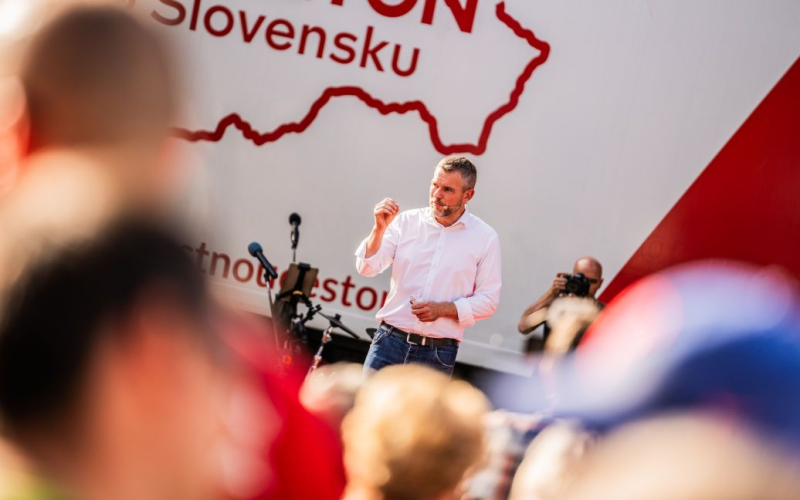
The leader of the party that took third place in the number of votes in the elections said that Slovakia ” ;nothing else to send” Ukraine.
The head of the Slovak Glas party, ex-Prime Minister of Slovakia Peter Pellegrini, said that military assistance to Ukraine is “no longer on the table.”
This is reported Dennikn.
According to the politician, there is “no more talk about military assistance to Kiev,” since, in his opinion, Slovakia “sends nothing more” to Ukraine.
At the same time, Pellegrini said he supported commercial contracts for the production of weapons and ammunition carried out by Slovak arms factories. He considers it important that people have jobs, and does not decide whether these products will go to Ukraine or other countries.
The publication also writes that the new government “wants to check as much as possible whether the previous military assistance provided to Ukraine.”
Note that the Glas party of ex-Prime Minister Peter Pellegrini gained 14.96% of the votes in the parliamentary elections, taking third place. According to experts, this party can enter into a coalition with both pro-Western and pro-Russian forces.
“Now the results show that Glas will be a party, without which it is impossible to form any normal, effective coalition government,” Pellegrini said, adding that the party “will make the right decision” to join the government. which will lead Slovakia out of “the decline and crisis into which we (the country’s previous leaders) were dragged.”
We recall that in Slovakia, according to preliminary vote counts, the pro-Russian party of ex-Prime Minister Robert Fico won the elections.
CNN recalled that Fico does not hide his sympathies for the Kremlin and blames the mythical “Ukrainian Nazis” for provoking dictator Putin to launch an invasion, repeating the false narratives of the Russian Federation.
According According to a survey by the Bratislava-based security think tank GlobSec, only 40% of Slovaks consider Russia responsible for the war in Ukraine. This is the lowest figure among the eight countries of Central and Eastern Europe and the Baltics.
Related topics:
More news

